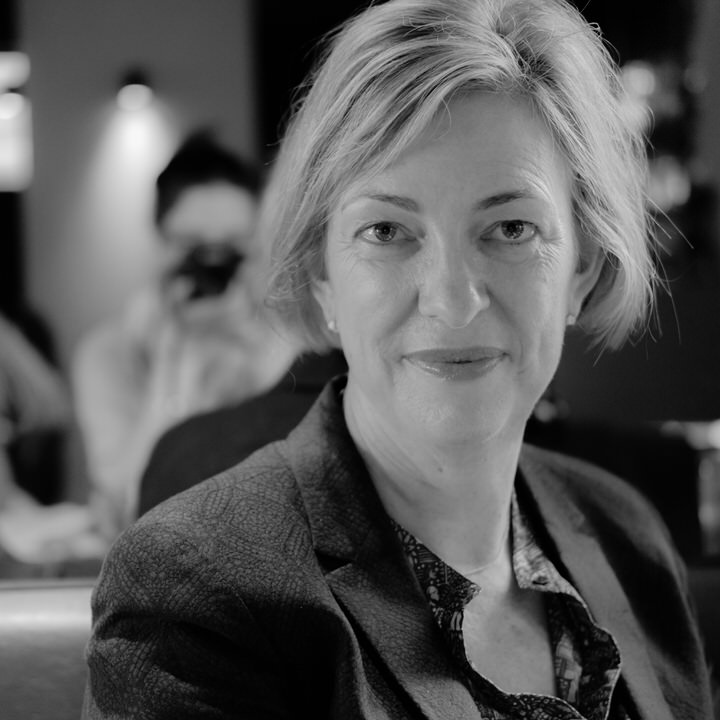
It’s unlikely Peter Greste thought he could help anyone from his Egyptian prison cell in 2014.
Convicted of spreading false news and aiding the banned Muslim Brotherhood, Greste was holed-up in a room 4m by 5m with two colleagues waiting to appeal his seven-year sentence.
Back in Australia, this mother-of three on the creaky side of 40 was struggling with a humdrum suburban life. I was close in age to Greste and I had problems too.
Well-educated, with lots of degrees gathering dust on the walls, I woke up one morning wondering why my physician husband had a curriculum vitae the size of a telephone book while my recent job history was mostly a string of volunteer posts.
In my twenties there had been the suggestion of a career in public policy, but life and a few life-choices had pushed me to the side-lines of the employment arena.
With three teenage daughters on the cusp of independence, I allowed myself to imagine a life outside my own virtual prison – our kitchen, the home office and the laundry.
Pushing aside nagging images of clichéd middle age, I went back to school to study journalism. I loved a yarn and enjoyed crafting a witty email. Getting paid to communicate seemed the obvious choice to jumpstart a career. How hard could a return to university be? Well, what seemed like a good idea in January felt farcical by the time orientation week rolled around a few weeks later.
From the day I lined up with the 18-year-olds to have my student ID photo taken, I felt like a tweed suit in a nightclub. I was the only one using pen and notepaper in lectures. And I was the only one jabbing at my smart phone with one index finger. Everybody else was strictly two thumbs. Still, I had paid big bucks for this ride and resolved to see it through.
I went to every lecture and tutorial, learning news values and interview skills. I joined Twitter and learned how to condense rambling thoughts and observations to 140 characters. I even started a blog. But most importantly, I learned about an industry in turmoil where even the best spelling and punctuation might not find a home. It was overwhelming.
By September, my January ambition to reskill felt ridiculous. I was busy with my other life, where I sewed ballet ribbons to pointe shoes and distributed clean clothes and walked the dog. My once regular yoga classes had become a distant memory and only my own mother read the blog.
That’s when Peter Greste rescued me.
Late one Sunday night, I abandoned whatever piece of assessment was due and trawled social media. Someone, somewhere, had posted details of a ‘free Peter Greste’ email address.
I’d followed Greste’s ordeal closely since his parents, Lois and Juris, had addressed students at a news writing lecture in February. Greste had been in prison only a few weeks at that point and the raw reality of his predicament must have weighed heavily on his parents. They walked slowly and their anxiety was reflected in their faces and voices. They were composed but tremulous. Juris was philosophical, talking with passion about the freedom of the press. Lois spoke like a mother. She talked about her son. Her hands shook but her voice was steady.

The strength Lois and Juris displayed that year, embracing every opportunity, mounting every platform to campaign for their son’s release, was inspiring. They may not have expected to gain much by talking to a room full of journalism students. But I can vouch for their effect.
Always during that year of study, when I felt stupid or lost or ridiculous, I would think of Greste confined in that prison cell, reading, meditating and learning Arabic, and his parents back home in Brisbane, just over the hill from me, gripped with fear for his future.
Always the contrast between my paltry concerns and his was stark. It was the jolt guaranteed to shake off my self-doubts and make me get on with it.
So that September night I emailed him. I started with, “Dear Peter, I’m sorry you’re in jail and I hope you get out soon”. But in a fit of sharing I segued into a rambling discourse. I wrote about my day and my dull, domestic concerns. As if he actually knew me and might be interested in my life.
I wrote about my walk that day on the local bike path, noting how many families were out enjoying the glorious afternoon. I shared my worries about one of my teenagers, struggling with the demands of year 12 and too many school formals. I wrote about magpies and the Ekka, and Brisbane’s August winds, and what it was like to be a tough parent. I lived in the same wedge of suburbia where he had grown up and spoke to him like he knew what I was talking about. I concluded with a wish for his speedy release, hoping he might soon be free to enjoy a Brisbane Spring too.
When I woke the next morning, recalling the rambling missive sent in the dead of the night to an unknown email address, I groaned at my foolishness then forgot about it, steeling myself for another day in the trenches of higher learning.
Two days later I received a response. The email address was real, managed by Greste’s sister-in-law Kylie, and my few words of encouragement and self-disclosure were to be included in a collation of emails delivered to Peter. I was elated.
Struggling with self-doubt and unable to see how I could ever get a gig as a communicator, it thrilled me to think Peter Greste, my touchstone, would actually read my words. It was the ultimate form of publication. I might never get work as a journalist, but I had infiltrated the walls of an Egyptian prison. I had been read and it felt good.
Since then, I have graduated and Greste has been released from prison – both big events, although one got slightly more media attention. After a slow start that year, I’m getting some work now. I won’t be paying off my tuition fees any day soon and Walkley contenders shouldn’t feel threatened. But I’m out there and I love it. And maybe one day I’ll meet Peter Greste in person and we can discuss the challenges of 2014 over a cup of tea. We might even go for a walk.



